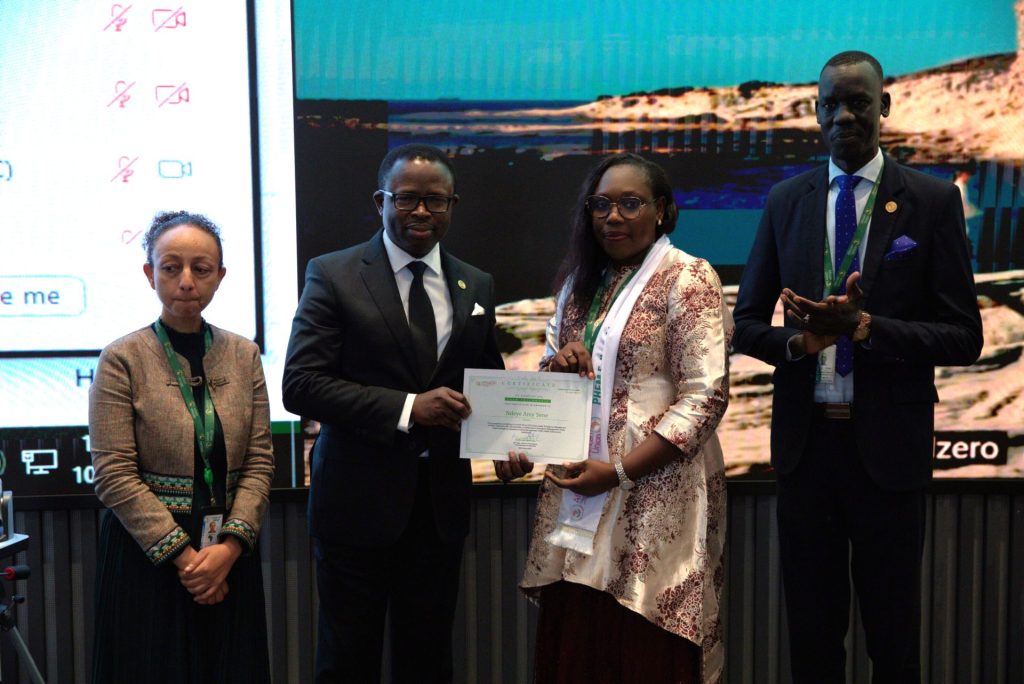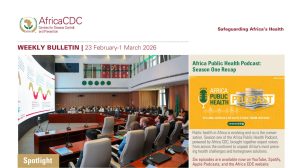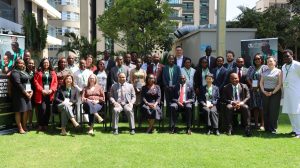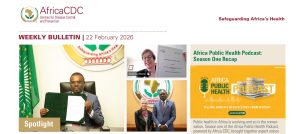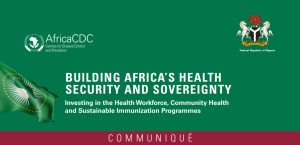Two cohorts of Public Health Emergency Management Fellows have so far been released by the Africa Centres for Disease Control and Prevention (Africa CDC) across the continent. These 27 fellows, consisting of eight from Cohort 1 and nineteen from Cohort 2, have the mandate to build a robust workforce capable of leading Africa’s public health emergency preparedness and response efforts.
Africa CDC, through its Public Health Emergency Management (PHEM) Fellowship Programme, continues to strengthen Africa’s health security workforce by building a cadre of well-trained professionals capable of leading and managing emergency preparedness and response systems across the continent.
The second cohort of the PHEM Fellowship, which commenced in April this year, has successfully completed all programme components, including in-person classroom modules, mentorship, Africa CDC Divisions shadowing, study tours (within and outside Africa), capstone project proposal finalisation, and field deployments to selected African Union Member States under the coordination of the Regional Coordinating Centres and the PHEM Programme Secretariat. They graduated on 29 October 2025 in a colourful ceremony at Africa CDC headquarters.
“The PHEM Fellowship remains a flagship initiative of Africa CDC, equipping a new generation of African public health leaders with the skills to prepare for, detect, and respond to emergencies. Through this programme, we are building not just individuals, but a network of experts who can collaborate across regions to strengthen our collective health security,” said Dr Raji Tajudeen, Acting Deputy Director General and Head of Division, Public Health Institutes and Research.
“To our graduates — your journey with Africa CDC does not end here. You are now ambassadors for the institution, part of a growing alumni network that will continue to support and inspire others. I encourage you to remain connected, share your experiences, and mentor future fellows. The continent needs your continued leadership and dedication,” said Dr Tajudeen.
Dr Tajudeen expressed gratitude to PHEM Technical Advisory Committee members, faculty members, mentors and technical partners — including the World Health Organization Regional Office for Africa (AFRO), WHO-EMRO and WHO Headquarters, the U.S. Centers for Disease Control and Prevention, the European Centre for Disease Prevention and Control, the UK Health Security Agency, the Robert Koch Institute, the Gates Foundation, Georgetown University, the Association of Schools and Programmes of Public Health, National Public Health Institutes of AU Member States, and Resolve to Save Lives — for their invaluable support and collaboration. “Your partnership reflects the very spirit of the New Public Health Order for Africa, anchored in unity, capacity building and accountability,” he said.
“Exactly six months ago, when we walked through the doors of this distinguished institution, Africa CDC, to begin this training programme, we were driven by the same ambition. We were full of expectations, curiosity, and yes, at times, uncertainties and doubts. But day after day, thanks to the quality of the teachings we received, the richness of our exchanges, and the diversity of our backgrounds, we grew individually and collectively,” said Dr Sandrine Babette Kamso Tchakounte, Cohort 2 Class Representative and Head of the Planning Unit, Cameroon Public Health Emergency Operations Centre (PHEOC).
“Six months may seem short,” she said, “but the experience we lived has been remarkably intense. Our training unfolded in six key components, each of which played a foundational role in shaping both our skills and our professional identities.”
Dr Sandrine said the theoretical courses provided the scientific, technical and strategic foundations essential for any effective public health emergency response. The shadowing experience within various departments of Africa CDC allowed fellows to understand internal operational and strategic mechanisms, regional coordination, strategic decision-making, and the importance of teamwork in serving Member States.
The study tours gave the fellows their first real-life immersion, during which they observed functioning emergency systems, exchanged knowledge with seasoned professionals, and examined operational response plans on the African continent and in Europe. “We returned enriched with best practices, but also with an awareness of the complex challenges faced across different contexts, and with a strengthened belief in the power of collaboration,” she said.
The fellows also benefited from a mentorship programme (which continues even after the fellowship) to develop and finalise their study projects based on identified gaps in emergency management in their respective countries. They will now work to implement these projects.
Looking back, the field deployment to Member States experiencing emergencies was an unforgettable human experience, Sandrine said. “This is where theory came to life, and our commitment took on its full meaning. For many of us, this was the moment we ceased to be simply fellows and became actors. We learned humility, teamwork, and the power of solidarity.”
“Managing emergencies is not only about managing data, but also about managing hope, fear and the resilience of communities and nations. This experience strengthened, tested and proved us. These months have forged in us far more than technical ability; they have deepened our sense of duty, reinforced our team spirit, and nurtured our capacity to act with humanity in the most critical moments.”
As we look ahead to the next phase, including the rollout of the third cohort, Africa CDC remains committed to sustaining and expanding this fellowship, said Dr Wessam Mankoula (Acting Head of Division, Emergency Preparedness and Response).
“We will continue to build partnerships, strengthen regional collaboration and invest in people — because it is through people that systems endure,” he said.
A highlight of the programme was the presentation of Certificates of Completion of the PHEM Fellowship by the Deputy Director General of Africa CDC to the successful fellows, and the expression of appreciation to the PHEM Fellowship Secretariat for their dedication and contributions to the cohort’s success.
The fellows were also inducted into the Africa CDC PHEM Fellowship Alumni Network and subsequently enrolled in the new Alumni Tracking System.
The next phase of the PHEM Fellowship includes a Technical Advisory Committee meeting and a PHEM training curriculum review workshop to integrate feedback from the fellows and ensure training materials align with current PHEM realities on the continent. Subsequently, a translation workshop will be convened to translate the updated materials into Africa CDC working languages before recruitment of the third cohort.

